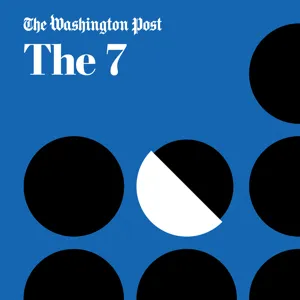Podcast Summary
New online casino opens in Michigan, Political tensions between US and Russia continue, California floods, and more: Caesars Palace online casino debuts in Michigan, US-Russia relations remain strained, California faces flooding, and a black hole study makes headlines
There are significant developments in both political and entertainment spheres. Caesars Palace online casino is now open for business in Michigan, offering new users attractive bonuses. Meanwhile, in the political arena, tensions continue between Russia and the US, with the death of Russian opposition leader Alexei Navalny and planned sanctions against Russia. President Biden's brother, James, is being interviewed in an impeachment hearing regarding Hunter Biden's business deals, but no evidence of wrongdoing by the president has been presented. In the news, California is experiencing flooding and mudslides, and scientists are studying a black hole that may have created the universe's brightest object. Trump compared his legal troubles to Navalny's plight during a Fox News town hall. These stories and more are covered in today's 7 from The Washington Post.
US Politics and UN Ceasefire Veto in the News: The US is facing political turmoil over Hunter Biden's upcoming interview and the possibility of impeachment, while also vetoing a UN ceasefire proposal for Gaza, drawing criticism from the international community
There are significant developments on two fronts that are making headlines this week. Firstly, following James Biden's testimony, Hunter Biden is scheduled for a closed door interview, but it remains uncertain if the Republicans have enough votes to impeach the president in the House, and a conviction in a Democratic-led Senate would be unlikely. Secondly, the US vetoed a UN proposal calling for an immediate ceasefire in Gaza, citing concerns that it would negatively impact ongoing negotiations for the release of hostages and could potentially prolong the conflict. Elsewhere, two men were charged with murder in connection to a shooting at the Kansas City Super Bowl parade, leaving one person dead and 22 others injured. In cybersecurity news, a major cybercriminal group called LockBit was disrupted by global law enforcement, with its software believed to have extorted over $120,000,000 from over 2,000 victims. The US, as Israel's staunchest ally, vetoed a third Security Council ceasefire resolution, drawing condemnation from diplomats and international aid groups.
Significant progress in fight against cybercrime group: Eleven countries seized computers, software, made arrests, and froze 200 cryptocurrency accounts from a notorious cybercrime group, offering hope to victims and recovering hundreds of electronic keys.
Law enforcement agencies from 11 countries made significant strides in the fight against a notorious cybercrime group. Yesterday, they announced the seizure of the group's computers and software, resulting in arrests and the freezing of 200 cryptocurrency accounts. Additionally, they recovered hundreds of electronic keys, offering hope to victims that they won't have to pay ransoms for stolen data. Meanwhile, in other news, a major storm hit California, bringing heavy rain, flooding, and mudslides. The storm, caused by an atmospheric river, triggered flash flood warnings and closed roads in several areas, affecting over 35 million people. In the world of astronomy, a new study identified the most luminous object in the universe, a quasar driven by the fastest growing black hole known to humans. Its mass is 17 billion times that of our sun, and it emits light 500 trillion times more intense than our sun. Despite its incredible brightness, it's located in a distant galaxy, so there's no need to worry about it affecting Earth. Finally, don't forget to sign up for our newsletter for more fascinating stories like these.
Learn to enhance friendships with expert tips: The Washington Post's new audio series, Try This, provides short and actionable tips to improve friendships daily.
Try This, The Washington Post's new audio series, aims to help individuals improve various aspects of their lives by providing expert tips in a concise manner. In the latest course, the focus is on enhancing friendships. The series is designed to save people time by delivering the information directly to their inbox every weekday morning. So, instead of spending hours searching the internet, you can learn practical tips to strengthen your friendships from the comfort of your own home. The course is hosted by Christina Quinn and promises to keep the sessions short and actionable. If you're interested, make sure to sign up and stay tuned for more episodes on various topics to become a better functioning human.






